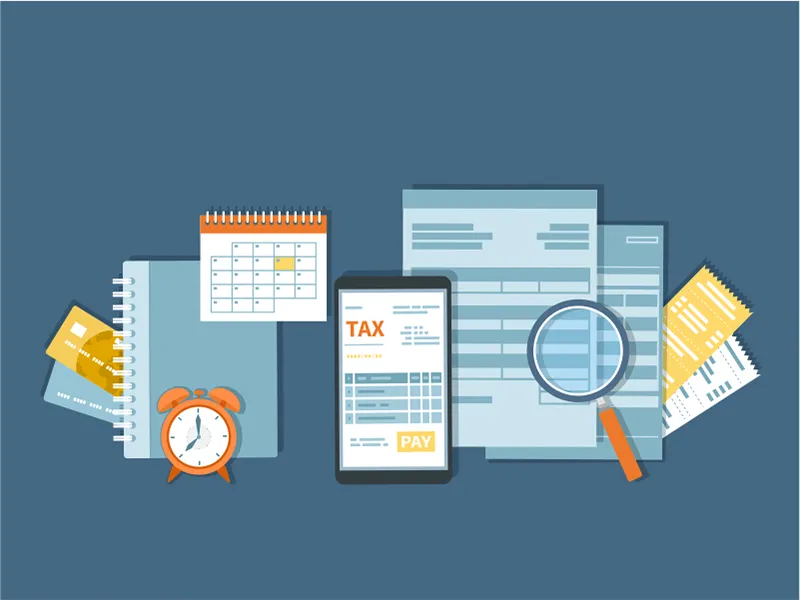
Come June, we all start thinking about fling Income tax returns, its while filing the returns we come across concepts like Financial year and assessment year. Are you confused between the differences between Financial Year and Assessment year and where do you use the right one? Read on, our blog helps you simplify the differences between the two.
Read More: How to raise grievance if your IT return is not processed?
What is the meaning of financial year?
A financial year is a 12-month period used by individuals, businesses, and governments for accounting and tax purposes. The financial year in India starts from April 1st of the year to March 31st of the following year. For example, the financial year 2022-2023 started on April 1, 2022, and ended on March 31, 2023.
For a taxpayer in India, understanding the financial year is quite crucial as it affects the reporting of their annual income as well as the calculation of taxes on such income. During the financial year, individuals and businesses earn income from various sources such as salaries, business profits, rental income, and investments. They also incur expenses such as rent, utilities, and other costs related to earning income. At the end of the financial year, individuals and businesses calculate their net income as per the provisions of the Income Tax Act 1961 and pay taxes on such income at the applicable tax rates. Taxpayers will also have to file their income tax returns at the end of every financial year within the applicable due date as per the provisions of the Income Tax Act 1961.
What is the meaning of assessment year?
An assessment year is the year immediately following a financial year, during which the income tax return for that financial year is assessed by the Income Tax Department in India.
In other words, it’s the year in which the taxpayer’s income tax liability is calculated and the tax return is processed. For example, if the financial year 2022-23 runs from 01 Apr 2022 and ends on 31st March 2023, the assessment year will run from 01 Apr 2023 to 31 March 2024.
For a taxpayer in India, it’s important to understand the assessment year as it determines the tax liability for the previous financial year. Taxpayers have to file their returns by 31 July of the assessment year for the financial which ended on 31 March.
It is during the assessment year that the Income Tax Department evaluates the income tax returns filed by taxpayers for the previous financial year and determines whether the tax paid by the taxpayer is accurate or needs to be adjusted. Once the tax return is filed, the Income Tax Department may issue a notice to the taxpayer for further assessment or clarification. The taxpayer must respond to the notice and provide any necessary documents or information. After the assessment is complete, the taxpayer will receive a notice of the tax liability or refund amount.
What is the difference between the Assessment year and Financial Year?
The key differences between the financial year and the assessment year are tabled hereunder.
| Category | Financial year | Assessment year |
| Meaning | The financial year starts from 1st April of a year up to 31st March of the following year. | The assessment year is the year immediately following the financial year. |
| Relevance | The Financial Year is used for financial reporting, budgeting, and financial planning purposes. | The Assessment Year is used for tax compliance, assessment, and payment. |
| Income and Expenses | In the Financial Year, individuals and businesses earn income, incur expenses and/or make tax saving investments. | In the Assessment Year, the Income Tax Department evaluates the income tax returns filed by taxpayers for the previous Financial Year and determines their tax liability. |
| Impact on taxation | Taxpayers have to pay advance tax based on the income ascertained in each quarter and finally at the end of the financial year. | Taxpayers are issued a notice for any additional tax liability or paid any refunds on the tax returns assessed in the Assessment Year. |
Conclusion
The financial year and the assessment year are two different concepts yet interlinked for taxpayers and tax authorities. The former is important for the calculation of tax liability and tax planning while the latter is used to file taxes and pay them as per the provisions of the Income Tax Act, 1961.
FAQs
The other name for the financial year are the previous year.
The due date for individual taxpayers to file their tax returns is 31st July of the corresponding assessment year.
No. The calendar year starts on the 1st January of a year up to the 31st December of that year. On the other hand, the financial year starts on the 1st April of a year up to the 31st March of the following year.
The current financial year is 2023-24 and the corresponding assessment year is 24-25.


























